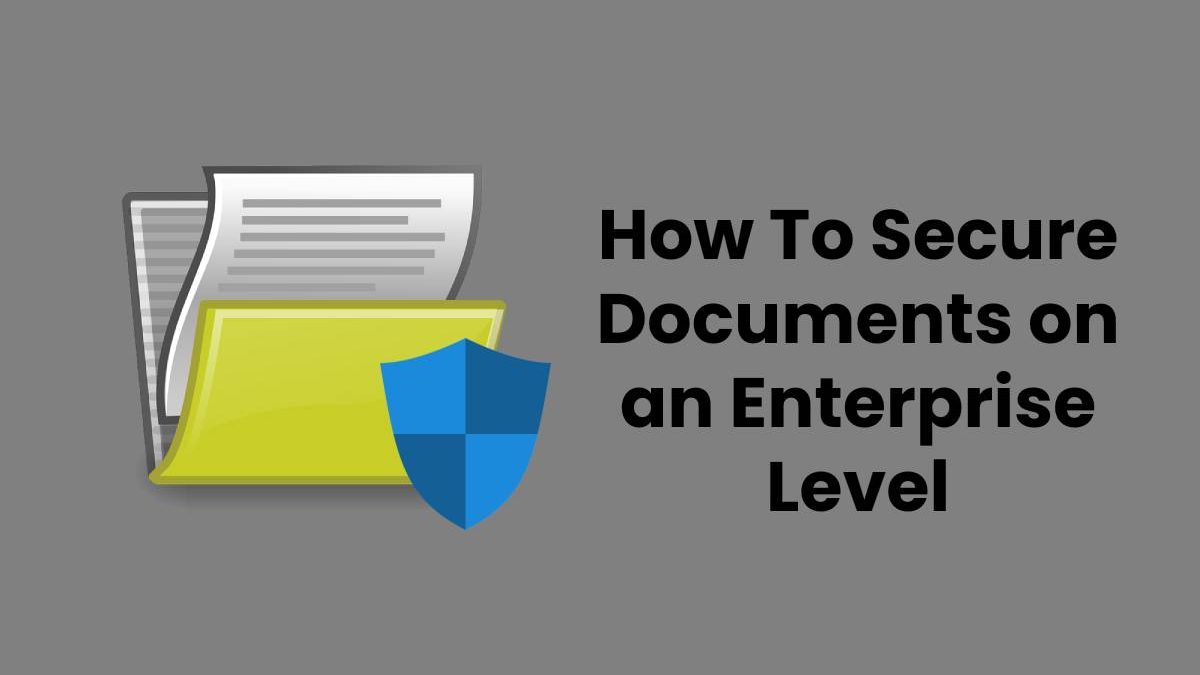Secure Documents on an Enterprise Level
In today’s business world, compliance and secure file sharing is crucial on every level. Whether you’re the entrepreneur of a startup or small business, or hold a key management position on an executive level, the value of secure online document and cybersecurity protocols are universal, and affect every element of your organization: communications, deal-making, legal procedures, and any other form of file sharing that is part of your routine.
Here, we will look at some ways to secure your documents and online file exchanges on an enterprise level. Regardless of remote working, in-person communications, or the modern additions of cloud storage options, there are new solutions for all your shared file needs.
Some Basic Shared Document Concerns

When it comes to secure document and file sharing, your business has a lot to protect. As the modern business landscape has shifted, enterprise-level companies now have to integrate remote workspace concerns into everyday communications and compliance. With that in mind, you need a secure way to ensure that your virtual meetings and secure online document sharing are never compromised, no matter the logistics. Traditionally, crucial closed-door meetings would exist in a physical data room, allowing clients and representatives from legal firms to join together for information exchanges.
Now, however, even the largest companies have to rise to a unique technological challenge: how to keep the integrity and security of a physical space and bring it into the virtual world. On top of the integration of remote team members, there are also new end encryption demands in the face of cloud service and the safety of a business’ internet connection. Realistically, as technology evolves, hackers tend to get equally savvy when it comes to obtaining sensitive documents, online file folders, and other valuable data shared on peer network.
Luckily, third-party cybersecurity companies have developed software for the most common concerns: password protection, seamless abilities to sync to the mobile devices of clients and team members, and fears of incoming malware that could lead to potential theft of intellectual property and financial records. With new options and the proper due diligence, enterprise-level companies can now rest assured that, even in cyberspace, security can still be business as usual.
Cybersecurity Options for Shared Files

While it always pays for large corporations to monitor the virtual interface compliance of every employee, as well as issue the hardware used for all communications (even business conducted remotely), the best option for ongoing online document sharing is integrating a reputable file-sharing service specializing in the encryption of cloud storage for sensitive documents. In effect, this means using a virtual data room for ongoing, routine protocol.
For those unfamiliar with a virtual data room (VDR), imagine the user-friendly applications of consumer-level file sharing cloud storage services such as Google Drive (or Google Docs), Dropbox, or Microsoft OneDrive, but on an enterprise-level and with dramatically heightened encryption capabilities.
With a third-party virtual data room, you host an admin console and allow access to the shared cloud service with selectivity using a shared link, ensuring that there is a data trail of anyone accessing your uploaded cloud files. Additional features usually include expandable cloud storage, meaning large files won’t become an issue due to size limit, as well as encrypted mobile app connectivity for administrators and two-factor authentication. This is why a virtual data room is the right choice for enterprises with confidential data and intellectual properties, especially during the M&A process.
Today, high-level virtual data room use has taken the place of physical data rooms for a wide range of industries, all of whom license business accounts for everyday communications and transactions. For example, mergers and acquisitions (M&A), real estate spreadsheets, legal document signing, and financial auditing records are all done remotely as data exchanges through protected online file storage and secure link share data.

